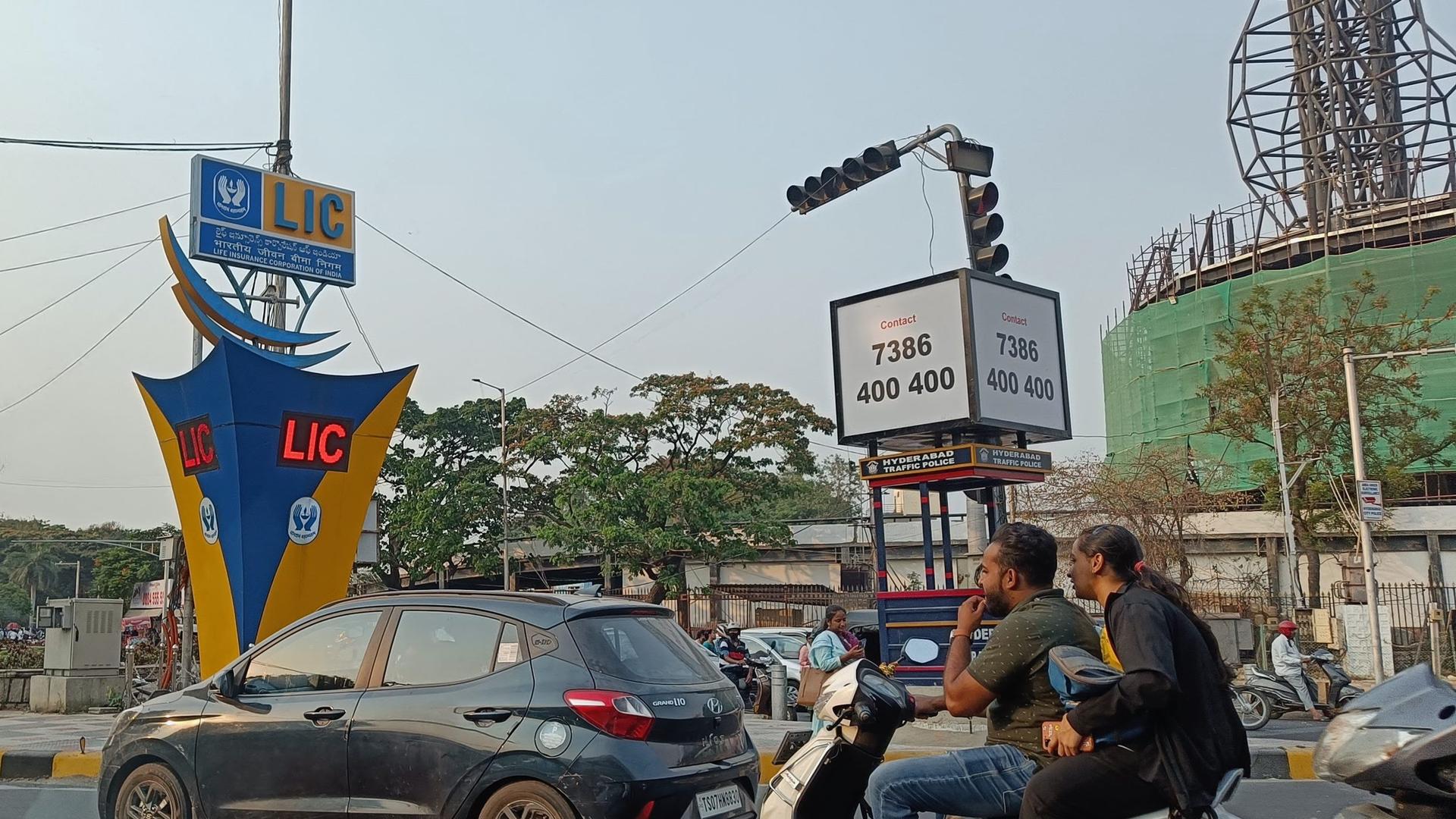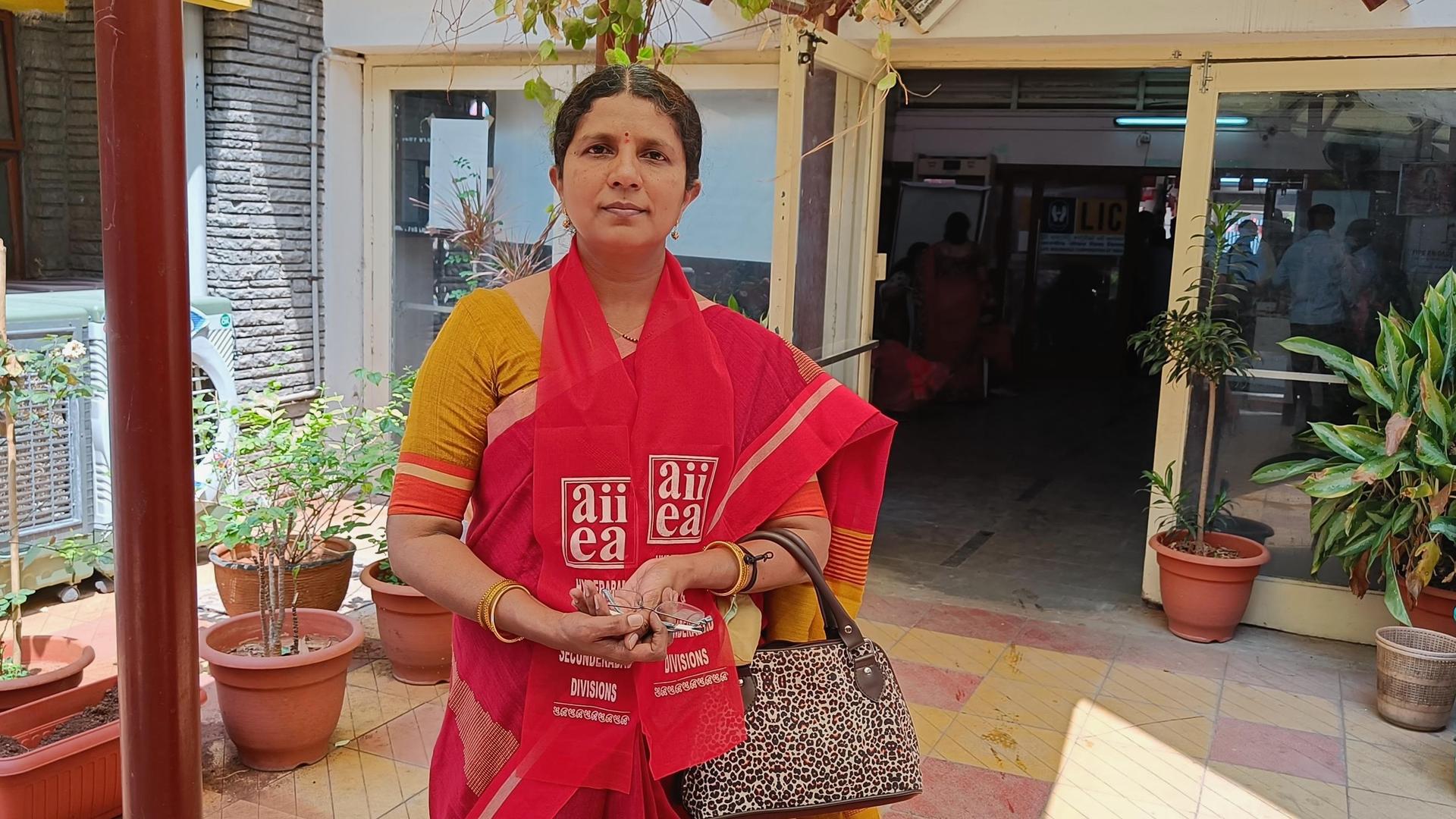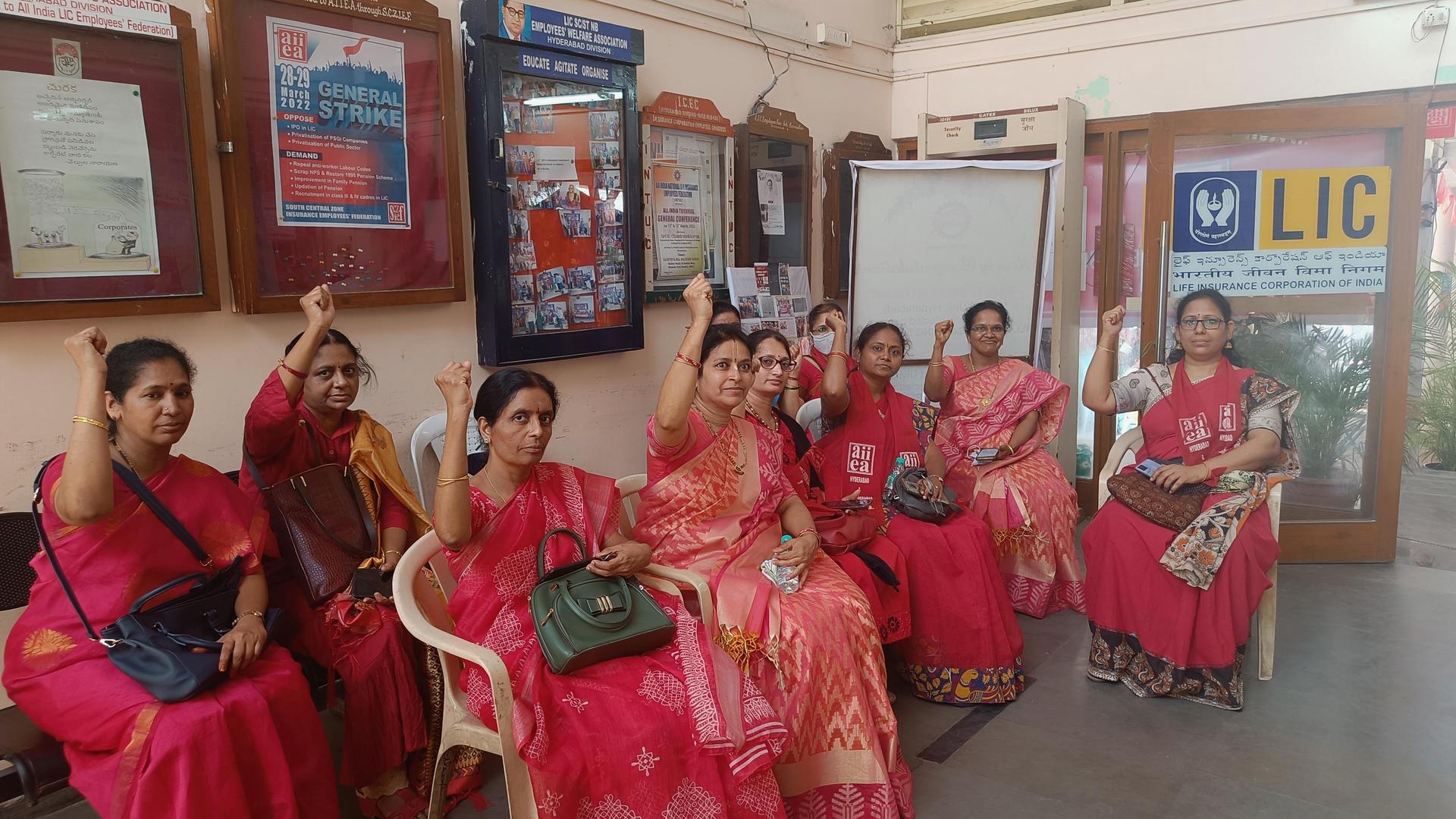When Cris Fernandes graduated from college some 10 years ago, the first thing his mom advised him to do was to get an insurance policy from the Life Insurance Corporation of India, or LIC.
It’s one of India’s oldest institutions and the country’s biggest insurance provider.
“It’s a kind of saving[s] and also, if anything goes wrong, you’re covered.”
“It’s a kind of saving[s] and also, if anything goes wrong, you’re covered,” said Fernandes, who is in his early-30s and works at a tech startup in Mumbai.
Related: ‘Hidden discrimination’: California university joins national trend to protect against caste bias on campus
The government is the sole owner of LIC, but that might change soon. The company is about to be listed on India’s stock exchange in what would be the country’s largest-ever IPO, or initial public offering.
The IPO would give the government much-needed spending power as it tries to boost India’s economy after the COVID-19 pandemic.
LIC is a household name in India. It has more than 250 million policyholders — greater than the entire population of many countries — and accounts for about two-thirds of the market share.
Fernandes said that he didn’t think twice about getting the policy. Both of his parents have been LIC customers. Just about everyone he knew had an LIC policy. He even grew up watching LIC ads on TV in India and said he still remembers their iconic jingle.

When Fernandes learned about the IPO, he knew he wanted to cash in — and buy shares in the company, in addition to his policy — even though he’s never invested in stocks before. Out of the roughly 316 million LIC shares that will be up for sale, 10% will be reserved for policyholders.
“The share market is very volatile and you could lose your money, but there is somewhat of a trust factor with LIC,” he said.
A mega IPO
The government, which currently owns 100% of the company, is planning to sell a 5% stake in LIC for roughly $8 billion — more than three times the value of the current largest Indian IPO, that of digital payments firm Paytm.
Related: India’s Warrior Moms tackle indoor air pollution — ‘the silent killer’
By that calculation, LIC would also become one of the biggest companies on the Indian stock exchange, and could even surpass Reliance Industries, the largest private-sector company in India, which is owned by one of Asia’s richest men.
Amol Agrawal, an economics professor at Ahmedabad University, said that it is an important milestone in India’s disinvestment journey, which began in 1991 when the government announced a series of liberal reforms to open up the economy.
Until 1991, “the government and its companies pretty much owned every activity of the [Indian] economy,” Agrawal explained. “In 1991, the government was tight[ly] strapped, it didn’t really have enough funds, so it thought [disinvestment] is a good way to bring some revenue.”
The other advantage of privatization, Agrawal said, is that it boosts efficiency and transparency because companies have to answer to shareholders.
“So far, LIC was a ‘black box,’ we didn’t really have an idea about what LIC was doing. Now, whatever happens in LIC, all those transactions will have to be reported to the stock exchange, so it brings transparency.”
“So far, LIC was a ‘black box,’ we didn’t really have an idea about what LIC was doing,” Agrawal said. “Now, whatever happens in LIC, all those transactions will have to be reported to the stock exchange, so it brings transparency.”
Voices against the IPO
But not everyone thinks LIC needs more transparency — or an IPO.
Related: Did the world ‘build back better’ since the start of the pandemic? Not so much.
“LIC means trust. People can just close their eyes and come to LIC,” said P. Sujatha, an LIC employee, as she and hundreds of her colleagues gathered in front of the company’s office in Hyderabad in southern India to protest against the IPO.

Their demonstration in late March was part of a two-day nationwide strike called by labor unions across the country against the government’s privatization policies, including the sale of 5% stake in LIC.
They fear it will pave the way for the total privatization of the company. Protesters say the IPO also goes against LIC’s ethos.
Sujatha, dressed in a red saree and scarf that bore the acronym of her union, which has a long communist tradition, said that LIC was “started with the intention to serve the interests of the country.”
“We are the custodians of the savings of the public. We have also been investing so much amount [of money] toward electricity, transport and other social schemes,” she said.
But that might change after the IPO, said union leader Giridhar, who goes by one name.
Related: Haunted India: A new ghost compendium features 700 creatures from A to Z
“Private players do not wish to have social security and social responsibility. They concentrate more on the profits, they do not give any amount to the people’s welfare,” he said. “Ultimately, the people of India will be the losers.”
The union says most LIC policyholders won’t get anything out of the IPO. LIC provides insurance to even the poorest of the poor, in rural areas and small towns of India, said B. S. Ravi, the union’s treasurer. The 10% quota for policyholders won’t benefit them because they rarely invest in the stock market, he said.

“[Policyholders in rural areas] don’t even have a bank account, forget about a [trading] account,” he said, adding that a handful of big investors will be the ones who will benefit the most from the IPO.
The employee union is also worried that the IPO could lead to layoffs.
How will the market react?
Others are worried about the IPO, too, but for different reasons.
Sonam Srivastava is concerned that an IPO the size of LIC could cause some turbulence in the market. She’s the founder of Wright Research, an investment advisory firm in Mumbai.
“What might happen is when an IPO this size comes into the market, people will start selling their current shares to subscribe into this, to get the money,” she said.
So, the IPO could trigger a sell-off. On the other hand, if markets remain volatile because of the war in Ukraine, Srivastava said, the IPO may not get enough takers.
“There is a possibility that this doesn’t get a very high cheer from the market because it’s such a huge size, and it is always tough to garner so much interest.”
“There is a possibility that this doesn’t get a very high cheer from the market because it’s such a huge size, and it is always tough to garner so much interest,” she said.
That’s why the government has delayed the IPO. LIC was supposed to make its stock market debut in March, but is now expected to do so sometime before mid-May.
Until then, Fernandes, the young professional and first-time investor, is trying to learn as much as he can about the stock market.
“I’m still trying to figure out what’s a ‘bull run’ and what’s a ‘bearish phase’ and stuff like that,” he said.
So far, he said he’s finding it pretty exciting.
